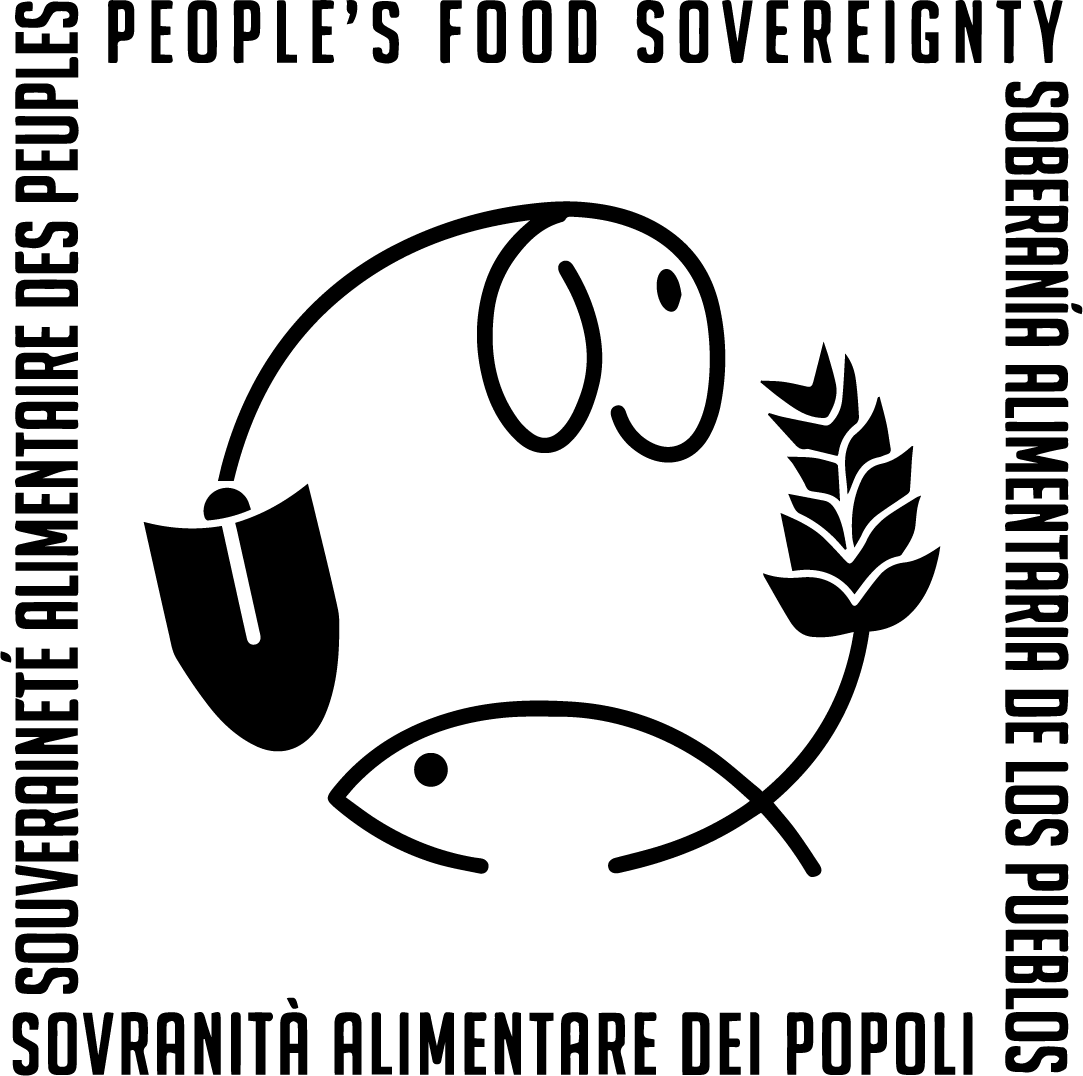https://www.foodsovereignty.org/those-most-affected-by-hunger-malnutrition-must-shape-un-food-systems-summit/
With the corporate world increasingly involved in UN decision-making, 550 CSOs, social movements and universities handover a letter to the UN Secretary General today asserting people’s role in the transformation of food systems.
Corporations in the global industrial chain are by themselves major drivers of ecological destruction, reduction of biodiversity and increasing hunger and malnutrition rates. They are responsible for the destruction of 75 billion tons of topsoil annually and they control the market environment that cuts down 7.5 million hectares of forest. Further, these account for at least 90% of agriculture’s fossil fuel use (and GHG emissions). Meanwhile, family farmers and small-scale food producers are behind 75% of the world’s food production (for human consumption and not for biofuel) through environmentally sustainable practices.
And yet, the UN is turning to the corporate world to solve the world’s crises.
In a letter handed-over last week to the UN Secretary General António Guterres, 550 civil society organisations (CSOs), universities and social movements from across the world are calling for a rethink of how the summit is organized.
The World Economic Forum (WEF), which signed a strategic partnership agreement with the UN Secretary General last June, is harnessing the opportunities of the technological revolution for the benefit of transnational corporations and global financial capital. Having it as an architect of the summit would push us away from real solutions to the ongoing crises of food systems and climate change.
The Food and Agriculture Organization of the United Nations (FAO) and the UN Committee on World Food Security (CFS) offer a different model. The CFS is widely recognized as the most inclusive and participatory UN Committee where the constituencies most affected by hunger and malnutrition can meaningfully participate in shaping intergovernmental decisions about the best right to food policies. The CFS is currently negotiating guidelines on food systems and nutrition as well as policy recommendations on agro-ecology, both of which genuinely address the concerns that the proposed UN summit wishes to pursue.
By the same token, FAO has adopted clear policies for engagement with civil society, indigenous peoples, and small-scale food producers, as well as substantive policy frameworks and processes for transforming food systems.
Bringing these two bodies, as well as governments – particularly of the countries most affected by food insecurity and the climate crisis – to the forefront to shape the summit, would ensure multilateral and inclusive food governance. It would bring us closer to real solutions to the world’s crises.
With the COVID-19 pandemic, the vulnerabilities and risks of a globalized industrial food system are more evident than ever. This can no longer be ignored: the international community must urgently address the short and long-term impacts that are expected on the right to food and nutrition of all peoples, but particularly the most discriminated and marginalized sectors of societies. The current crisis further evidences the need for the transformation of food systems.
CSOs have also raised concerns over the appointment of Agnes Kalibata as UN Special Envoy
to the summit. As president of the agribusiness-led alliance AGRA, her role in the summit would create a conflict of interest. And while this move further risks corporate influence at the summit, disregarding the potential role of people most affected by hunger and malnutrition would make food governance truly undemocratic.
You can read the letter here.



